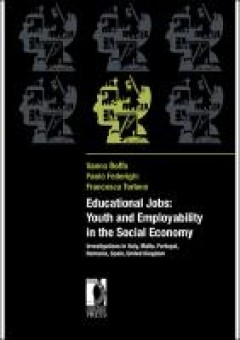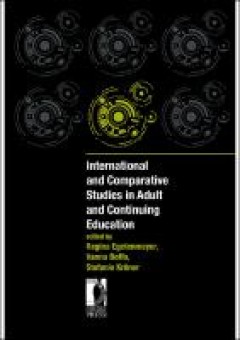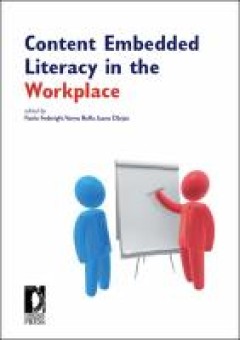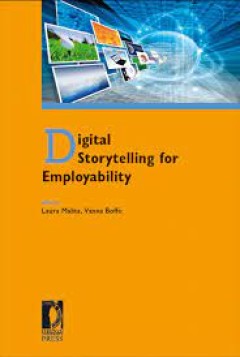Filter by

Educational Jobs: Youth and Employability in the Social Economy
In Europe the social economy employs almost 15 million workers. During the crisis years, unlike other sectors, it has often generated an increase in jobs. The aim of this comparative study is to investigate how to allow the supply and demand for young people to meet in the different types of social economy bodies. In particular, it concentrates on the problem of how to bring into line initial u…
- Edition
- -
- ISBN/ISSN
- 9788866558293
- Collation
- 218p : ill
- Series Title
- -
- Call Number
- 330 EDU e

International and comparative studies in adult and continuing education
This volume gives theoretical and practical insights in international and comparative research in the field of adult and continuing education. The 16 contributions of this volume give three perspectives on international and comparative adult education. The first perspective focuses on the question how internationalisation and comparative adult and continuing education can be taught. The second …
- Edition
- -
- ISBN/ISSN
- 9788855181549
- Collation
- 235p; ill
- Series Title
- -
- Call Number
- 374 INT b

Content Embedded Literacy in The Workplace
The topic of embedded literacy, closely connected to embedded learning on one hand, and training in the workplace on the other, is a central theme for reflection on adult education in Europe and around the world. The Council of Europe indicates knowledge as a pivotal element for the economic and social development of the EU countries and the workplace is an important place for the learning and …
- Edition
- -
- ISBN/ISSN
- 9788864530871
- Collation
- -
- Series Title
- -
- Call Number
- -

Digital storytelling for employability
This publication results from the research work undertaken by the partner institutions involved in the KA3-ICT Project Transversal Lifelong Learning Programme, Learn about finding jobs from digital storytelling(143429-2008-LLP-RO-KA3-KA3MP), with the main purpose of enhancing graduates' employability possibilities. For graduating students looking for a job it is perhaps harder than ever to meet…
- Edition
- -
- ISBN/ISSN
- 9788864531816
- Collation
- xv, 112p. : ill.
- Series Title
- -
- Call Number
- 006 MAL d

A glance at work : educational perspectives
The topics of work flexibility, precarious jobs, and the relationship between work, the market and production are subjects that are widely debated in the sociological, philosophical, economic and political spheres. Yet these topics are less touched on in the tradition of pedagogical research. The intention of this book is to build a seedbed for reflection on the central position assumed by work…
- Edition
- -
- ISBN/ISSN
- 9788866551874
- Collation
- 167p.
- Series Title
- -
- Call Number
- 331.125 VAN a
 Computer Science, Information & General Works
Computer Science, Information & General Works  Philosophy & Psychology
Philosophy & Psychology  Religion
Religion  Social Sciences
Social Sciences  Language
Language  Pure Science
Pure Science  Applied Sciences
Applied Sciences  Art & Recreation
Art & Recreation  Literature
Literature  History & Geography
History & Geography